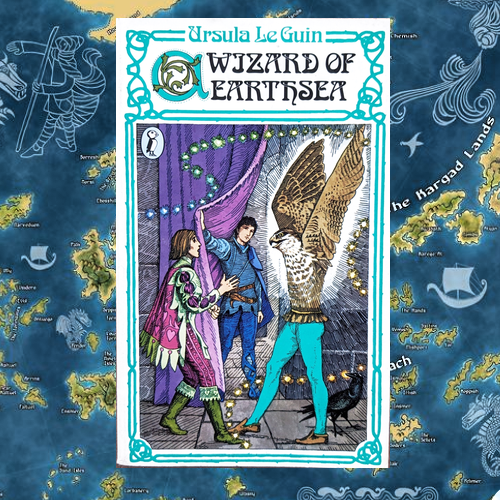|
Put a spell on me from the outset.
There is something about Le Guin’s writing that I have always found captivating and it is this: she stays faithful to the story and always speaks her truth, which is no small matter. One has to be open to and in touch with it. Then she communicates in the timeless imagery of the unconscious which is myth. In her particular, unadorned style, the narrative moves forward with such simple assurance that it lends an aura of inevitability to events. The author hadn’t read Jung when she wrote this and subsequent books in the cycle, and didn’t need to, of course. She trusted her native intuition and A Wizard of Earthsea took on archetypal attributes naturally. She knew the importance of secrets. It makes the story particularly apt for those entering adulthood, although the mythic quality and Le Guin’s depth will speak to the old soul in anyone. I read this fantasy series when I was about thirty and felt its strong mystery and truth then. The seriousness with which the dwellers of Gont take the gift of the power of spells matches Le Guin’s own. For all that she enjoyed writing the fantasy, she never took it lightly. To make “worlds out of words” is truly a power. “Obviously, to me, words do make magic,” she said. And the greater the power to work magic, the greater the mage’s responsibility, as Ged will discover. It cannot make him, but it can break him. Where Le Guin differs from other fantasy writers, even a great one like Tolkien, is in eschewing the military battleground and denying it centre stage for good and evil to fight it out. Such a denouement was too facile and unsatisfactory in her view. In the world that she creates, there is an imbalance and it needs to be put right. Instead of witnessing armies assemble, we feel the hidden conflict in Ged’s own person. The shadow passes over our hearts, and the real story is of the self.
0 Comments
Leave a Reply. |
Blogging good books
Archives
July 2024
Categories |

 RSS Feed
RSS Feed
